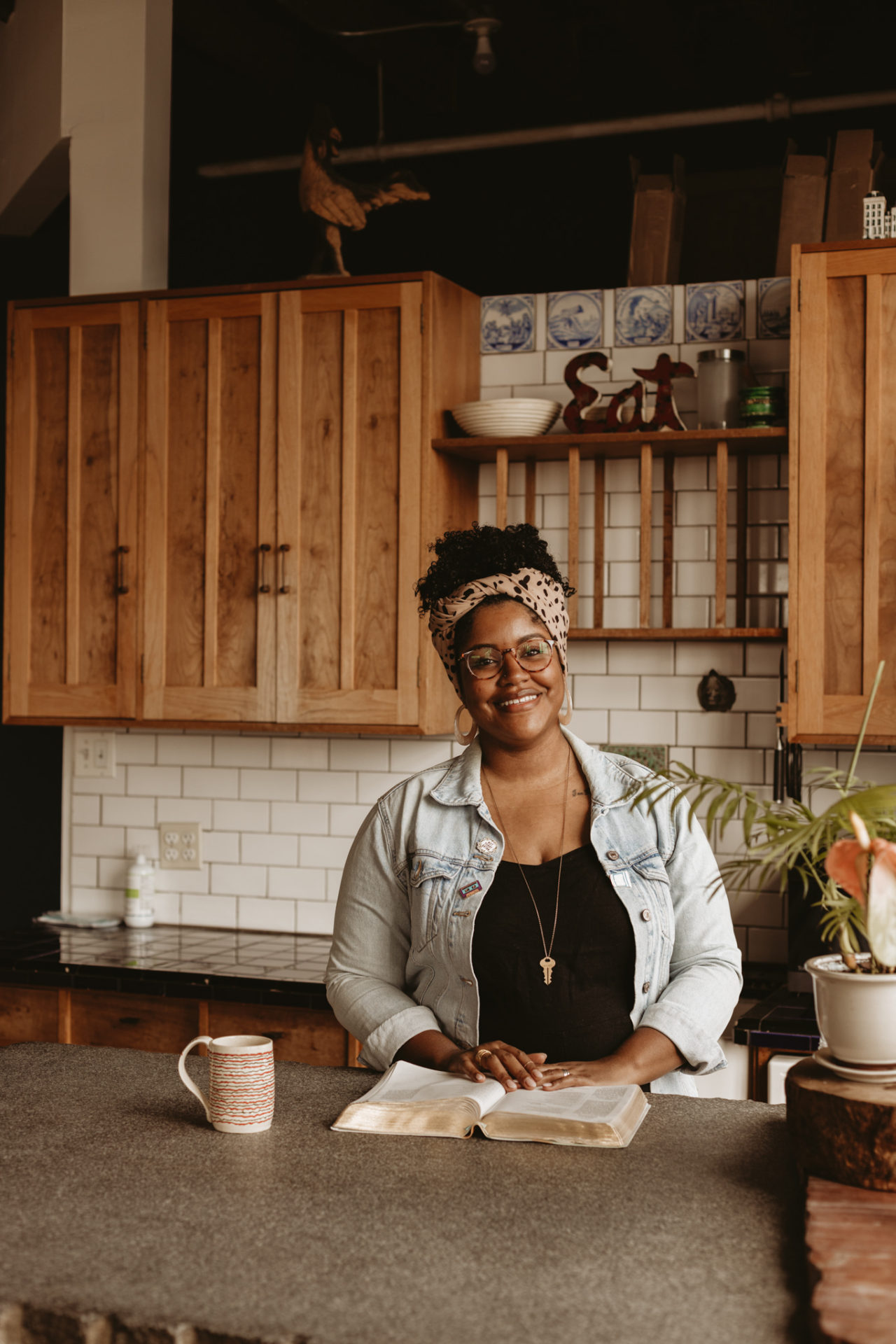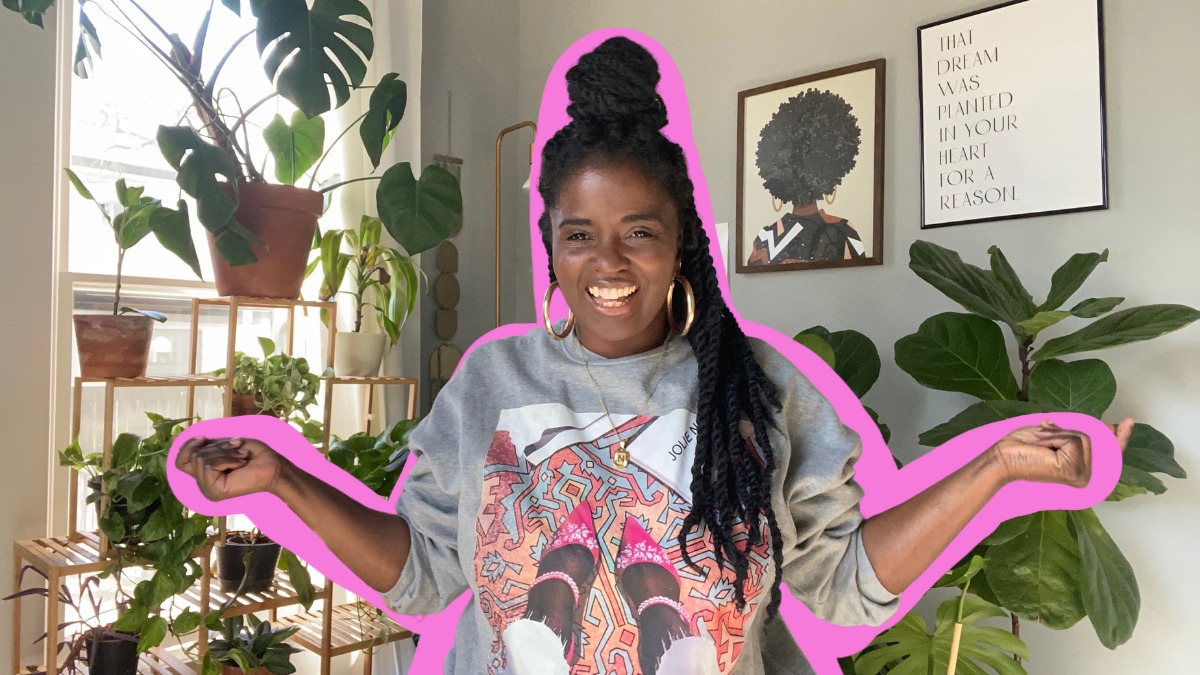4 Daily Habits to Take Care of Your Mental Health

Written by Nikki Newbauer
Self-care has become a buzzword in the past few years, and it’s easy to find an abundance of information on the topic. Sure, a hot bubble bath, gourmet chocolate, and a good romcom can bring a lot of comfort at the end of a tough day. Still, in “self-care” culture, I’ve felt that something is missing–authenticity. Acts of self-care certainly matter but also vary from person to person. The commercialization of self-care has made the term lose the weight of its meaning, and, to be honest, a quick list of face mask recommendations misses the mark.
Dig beyond the recommended beauty products, affiliate links, and pay-per-click ads, and you get to the core of self-care. Authentic, raw, and genuine mental health. I’ve thought about the nature of self-care for some time because I found I was spending loads of money on things marketed to me without thinking about my needs. At the root of it all, I discovered what my mental health needed and created daily habits that would help sustain me rather than always reaching for the comfort of Netflix and chocolate in the name of “self-care.”
These daily habits are simple, yet they help me immensely!


Limit Time on Social Media
I always intended to put a limit on my time scrolling on social media but kept putting it off. It wasn’t until I took time to see the direct correlation social media was having on my mental health that I made a game plan. I came across research that also helped me put my intention into action.
The National Alliance on Mental Health states that research has shown that people who spend more time on social media and less time in personal interactions with others have an increased risk of feeling anxious and depressed.
It was hard to ignore that my time on social media lead me into a comparison trap, increased my anxiety, and affected my sleep. I felt empowered, though, when I decided to put a time limit on my scrolling.
Here’s what I did to get a handle on my social media-related anxiety:
- Set a time three hours before bedtime for my social media apps to turn on “sleep mode”
- Unfollowed and unfriended people’s accounts that were particularly triggering for me
- Unfollowed hashtags and groups that didn’t interest me anymore
- Blocked most of the ads that popped up as I scrolled, marking them “irrelevant”
- Began following organizations that were community-focused, positive, and authentic
Since putting these steps in place, I have found that my impulse to open social media apps just for the sake of “busyness” has nearly gone away. Now, I can sit at a red light, wait for a friend at the coffee shop, or ride an elevator without reaching for my phone. Noticing the world around me has been great for my mental health because I feel more grounded and content.
Get Creative
If you just sighed and thought, “But I’m not the creative type,” please keep reading.
You are creative!
Creativity doesn’t mean I get a canvas out and do a MasterClass tutorial. I create all day for my job as a writer; so, sometimes, I want to disconnect from the creative sphere and binge-watch The Office. The truth (although I was sad to admit it) was that my mental health and happiness were significantly better when I opted out of the tenth episode in-a-row and used my creative juices a bit.
Creativity doesn’t have to equate to something artistic. So, if the thought of sketching or painting makes you cringe, there are plenty of other options for you! Here are a few ways that I may choose to express my creativity each day:
- Baking and decorating cupcakes
- Rearranging my closet and seeing if I can create new outfits out of things I already own
- Coming up with a unique essential oil blend for the diffuser
- Listening to a podcast themed around creativity
- Reading a book I’ve never read before
Seek Inspiration
I created a Pinterest board with inspirational quotes three years ago and never looked at them again.
Pinterest became too distracting for me to get my inspirational goodness from. So, I found what worked for me. A friend of mine kept a notebook called an “Echo Book.” When she came across an inspirational saying or excerpt from a book, she would write it out in her notebook. When she felt discouraged, exhausted, and weary, she’d open the notebook and read it. The inspiration would “echo” back to her.
If you want to make your own “Echo Book,” consider adding a bit of fun to it:
- Take the “junk journal” approach—fill it with mixed media and don’t worry about perfection
- Put photos of loved ones in your notebook.
- Create your own inspirational quotes
- Try hand lettering and divide your notebook into chapters
- Use washi tape, confetti, newspaper clippings, and ticket stubs to depict things you’re thankful for
Take Time for Introspection
This daily mental health habit is the most difficult to stay committed to. Most of the time, we don’t want to look inward. It’s tough to deal with things that are raw and painful. I created this habit with a lot of grace in place for myself. I don’t have to be introspective in the sense that I bear all of my insecurities and pain every single day. If I did that, there’s nothing that would pry me away from numbing myself through binge-watching.
However, when I take time to be present in my body and assess my needs, I’m watering my mental health with the nourishing cool water it needs. Introspection will look different for every personality type (or enneagram!). Here are a few ways you can exercise reflection without damaging your mental health in the process:
- Creating time for you to be at home in your breath and body through meditation
- Napping to create stillness for you to reflect and recharge
- Journaling daily to say what’s on your heart and mind
- Taking time to drink a cup of coffee or tea (while it’s hot!) and be fully present in that moment without distractions like your phone or TV
- Asking your body, “What do I need?”—whether it’s protein, rest, or a hug, taking the time for introspection will get you in better alignment with your innermost needs
Before You Go
You may not connect with these exact scenarios, but I encourage you to dig deep and discover what your body, mind, and spirit need. Tell us, what habits do you have to keep your mental health in check?
Related Resources
What I’ve Learned as a Therapist (Part 3): Do the Thing
If left to my own devices, I would live entirely in my head. I would imagine my life without ever having to risk the feeling of failure or embarrassment. I could create a whole world of dreams and goals that I’m passionate about within the confines of my imagination....
What I’ve Learned as a Therapist (Part 2): Knowledge Doesn’t Keep You From the Human Experience
“I should’ve known better,” is a phrase I’ve heard many times and said myself. It’s a statement made in frustration and often in pain about how something has impacted us, or a decision we’ve made that we wish could be different. “I can’t believe that impacted me so...
What I’ve Learned as a Therapist (Part 1): The Power and Problem of Simple Truths
There is great power in simplicity, or insight that’s distilled to its essence. I think about this a lot as a therapist because I find myself giving annoyingly simple recommendations to clients at times. However, oversimplification—paring something deeply complex...
